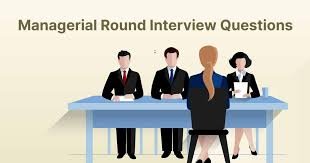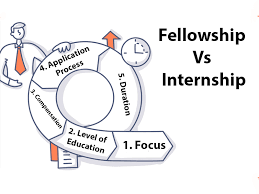
Managerial Interview Questions: Acing Your Next Leadership Round
Navigating the Managerial Round: Essential Interview Questions (And Sample Answers)
Congratulations! You've made it past the initial screenings and the technical assessments. You've impressed the recruiters, and now you're one step closer to your dream job. The next hurdle? The managerial round. This isn't just another interview; it's a pivotal conversation that can make or break your candidacy. While previous rounds focused on your skills and experience on paper, the managerial round delves deeper into who you are as a leader, a problem-solver, and a potential team member.
The hiring manager wants to understand your thought process, your leadership philosophy, and how you would fit into the team and company culture. They're looking for signs that you can not only do the job but also excel in a management or leadership capacity. To help you ace this crucial stage, we've compiled a list of common managerial round interview questions and provided a framework for crafting compelling, well-structured answers.
The Purpose of the Managerial Round
Before we get to the questions, it's important to understand the goal of this interview. The hiring manager is trying to assess:
-
Your Leadership Potential: Even if you're not applying for a management role, they want to see if you can take initiative, influence others, and lead projects.
-
Problem-Solving Skills: They'll present you with hypothetical or past scenarios to see how you think under pressure and how you approach challenges.
-
Cultural Fit: They want to know if your personality, values, and work style align with the team and company culture.
-
Motivation and Vision: They'll ask about your career goals and how this role fits into your long-term plan, ensuring you're a motivated and invested candidate.
-
Communication and Interpersonal Skills: A manager's success is largely dependent on their ability to communicate effectively, resolve conflicts, and build relationships.
The key to success is not just having the right answers but demonstrating a thoughtful, professional, and confident approach. Use the STAR method (Situation, Task, Action, Result) to structure your responses, providing concrete examples that showcase your skills and accomplishments.
Common Managerial Round Interview Questions (And Sample Answers)
1. "Tell me about a time you had to make a difficult decision. How did you handle it?"
Why they ask: This question assesses your decision-making abilities, critical thinking, and your capacity to handle pressure and potential conflict. They want to see that you can weigh pros and cons, consider various stakeholders, and stand by your choices.
How to answer: Frame your response using the STAR method. Choose a specific example where you had to make a tough call. Explain the situation, the options you considered, the process you used to arrive at a decision, and the ultimate outcome. Be sure to highlight the rationale behind your choice and any lessons you learned.
Sample Answer: "In my previous role as a project lead, we were facing a tight deadline on a major client project. A key team member fell ill, and we were at risk of not meeting the delivery date. The difficult decision was whether to push the deadline with the client, which could damage our relationship, or to reallocate the sick team member's tasks among the remaining team, which would increase their workload and potential for burnout.
My task was to make a decision that would protect both the project's integrity and the team's well-being. I first met with the team to get their input. We collectively assessed the remaining tasks and identified which ones were most critical. I then spoke with the client, explaining the situation transparently and presenting a revised, more realistic timeline. Simultaneously, I created a plan to distribute the work among the team members who were willing and able to take on more, while also offering them compensatory time off after the project was completed.
The result was that the client appreciated our honesty and agreed to a slightly extended deadline. The team, feeling respected and supported, worked collaboratively to deliver a high-quality project on time. We not only met our goals but also strengthened our team's trust and improved our relationship with the client. It taught me the importance of transparent communication and prioritizing team morale."
2. "How would you describe your management or leadership style?"
Why they ask: This is a classic question designed to understand your approach to leading a team. They want to see if your style aligns with their company culture. For example, a company with a flat hierarchy might not be a good fit for a highly authoritative leader.
How to answer: Be honest and authentic. Describe your style using a few key adjectives, such as collaborative, supportive, or results-oriented. Back up your description with a specific example of how you've applied this style in a real-world scenario and what the outcome was.
Sample Answer: "I would describe my leadership style as collaborative and supportive. I believe in empowering my team members to take ownership of their work and make decisions, while providing them with the necessary guidance and resources. My goal is to create an environment where everyone feels valued and can contribute their best work.
For example, when I led a software development team, I implemented a system where each developer was responsible for their own code from start to finish. This included peer reviews, testing, and deployment. Instead of micromanaging, I would hold daily stand-ups to check in on their progress, provide support for any blockers, and encourage them to share their knowledge and learn from each other. This approach not only increased their sense of ownership and accountability but also fostered a more innovative and efficient team. We saw a significant increase in code quality and a reduction in project timelines."
3. "Tell me about a time you had to deal with a conflict within your team. How did you resolve it?"
Why they ask: Conflict is inevitable in any workplace. This question gauges your interpersonal skills, emotional intelligence, and ability to mediate disagreements effectively. They want to see that you can handle difficult situations calmly and professionally, focusing on a positive resolution rather than assigning blame.
How to answer: Choose a specific, professional example. Use the STAR method to describe the situation, your role in addressing the conflict, the actions you took to mediate it, and the positive outcome. Emphasize your neutrality, active listening skills, and ability to foster open communication.
Sample Answer: "In my last role, two senior designers on my team had a strong disagreement about the creative direction for a new product launch. The conflict was starting to affect the team's morale and project momentum.
My task was to mediate the situation and find a solution that everyone could get behind. I first met with each designer individually to understand their perspective and the rationale behind their proposed direction. I made sure to actively listen to their concerns without taking sides. I then brought them together for a structured conversation.
During the meeting, I acted as a facilitator, ensuring they both had an equal opportunity to present their ideas and that the conversation remained respectful and focused on the project's goals. I asked them to identify the shared objectives of the project, which helped them realize they were more aligned than they thought. We then created a hybrid approach, taking the best elements from both of their ideas.
The result was not only a successful product launch with a strong creative direction but also a renewed sense of respect between the two designers. They learned to appreciate each other's perspectives, and the experience strengthened our team's communication and collaboration."
FAQs
1. What is the key difference between a technical round and a managerial round?
The technical round focuses on your hard skills, knowledge of the industry, and problem-solving abilities within your specific field. You'll likely be asked to solve technical problems, write code, or explain complex processes. The managerial round, on the other hand, assesses your soft skills, leadership potential, and cultural fit. The questions are more behavioral and situational, exploring how you interact with people, handle challenges, and contribute to a team's success.
2. Should I prepare specific examples for the interview?
Yes, absolutely. The best way to prepare for a managerial round is to have a bank of stories ready that demonstrate your key skills. Think about times you've handled conflict, led a project, made a difficult decision, or dealt with a failure. Use the STAR method to structure these stories, ensuring you have a clear situation, task, action, and result for each one. This will help you answer questions confidently and with concrete evidence of your abilities.
3. What should I do if I get a question I'm not prepared for?
Don't panic. It's okay to take a moment to think. You can say something like, "That's a great question, let me think of a specific example." Taking a brief pause shows that you're thoughtfully considering the question rather than giving a canned response. If you can't think of a direct, specific example, you can answer hypothetically, but it's always better to draw from your personal experiences if possible. Be honest, thoughtful, and focus on demonstrating your thought process.




